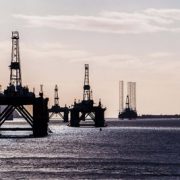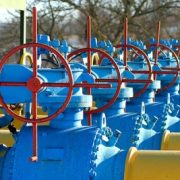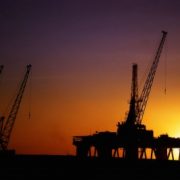Expert questions BP’s drilling plans for offshore Nova Scotia
The Canadian Press / The Chronicle Herald / May 15
An engineering expert and former oil industry consultant has raised the alarm on BP Canada Energy Group’s plans to drill off Nova Scotia.
“Given BP’s current proposals for exploratory drilling offshore Nova Scotia, the likelihood of an uncontrolled blowout exceeds the upper limits for tolerability of exploratory well drilling risks,” said Robert Bea in his risk analysis of BP’s plans.
Bea, who is professor emeritus at the Center for Catastrophic Risk Management at the University of California at Berkeley, has investigated catastrophes including the Columbia space shuttle explosion in 1987 and the blowout of a Deepwater Horizon rig owned by BP eight years ago.
“Based on the information provided by BP, the blowout risk is clearly not acceptable,” Bea said in an interview Monday.
Bea uses a complex risk assessment system that looks into factors such as the commitment of everyone involved in an operation to safety, from contractors to the company’s top managers. The company’s awareness of major risks and its technical and management ability to assess risk is also taken into account.
After applying these criteria to BP’s plans for offshore Nova Scotia, Bea said the risk of an uncontrolled blowout like Deepwater Horizon was high. Eleven rig workers were killed in the Deepwater explosion on April 20, 2010, in the Gulf of Mexico and it triggered the biggest oil spill in U.S. history at an estimated 4.9 million barrels.
In a decision in early April, the Canada-Nova Scotia Offshore Petroleum Board authorized BP Canada to do preparatory work in advance of its plan to drill an exploration well about 50 kilometres off Sable Island. The decision drew protests from groups, including the Council of Canadians, about the environmental risks associated with the project and the strength of the regulations that govern the offshore.
BP contends that if there was a blowout off Nova Scotia, there would be sufficient time to drill a relief well and to get access to equipment such as a capping stack to contain the situation. But Bea said he questions that optimism, based on the documentation he’s seen and his personal experience in assessing gas and oil projects.
The provincial and federal governments have denied that the project, which could see up to seven exploration wells drilled off the southeast coast of Nova Scotia over a three-year period, poses unacceptable environmental risks.
Premier Stephen McNeil has said he’s confident that BP would take the appropriate measures to ensure safety and environmental responsibility throughout the project. He said BP has taken strides to strengthen regulations since Deepwater.
Federal Environment Minister Catherine McKenna has said the project “is not likely to cause significant adverse environmental effects.”
Bea agrees there would be economic benefits for Nova Scotia but only if the project is done successfully.
“I don’t think it’s a case of we should do this at all,” he said. “I think it’s a case of if we choose to do this, we need to do it with the best available technology. Because the consequences of being wrong are too high.”
The Canadian Press / The Chronicle Herald / May 15








